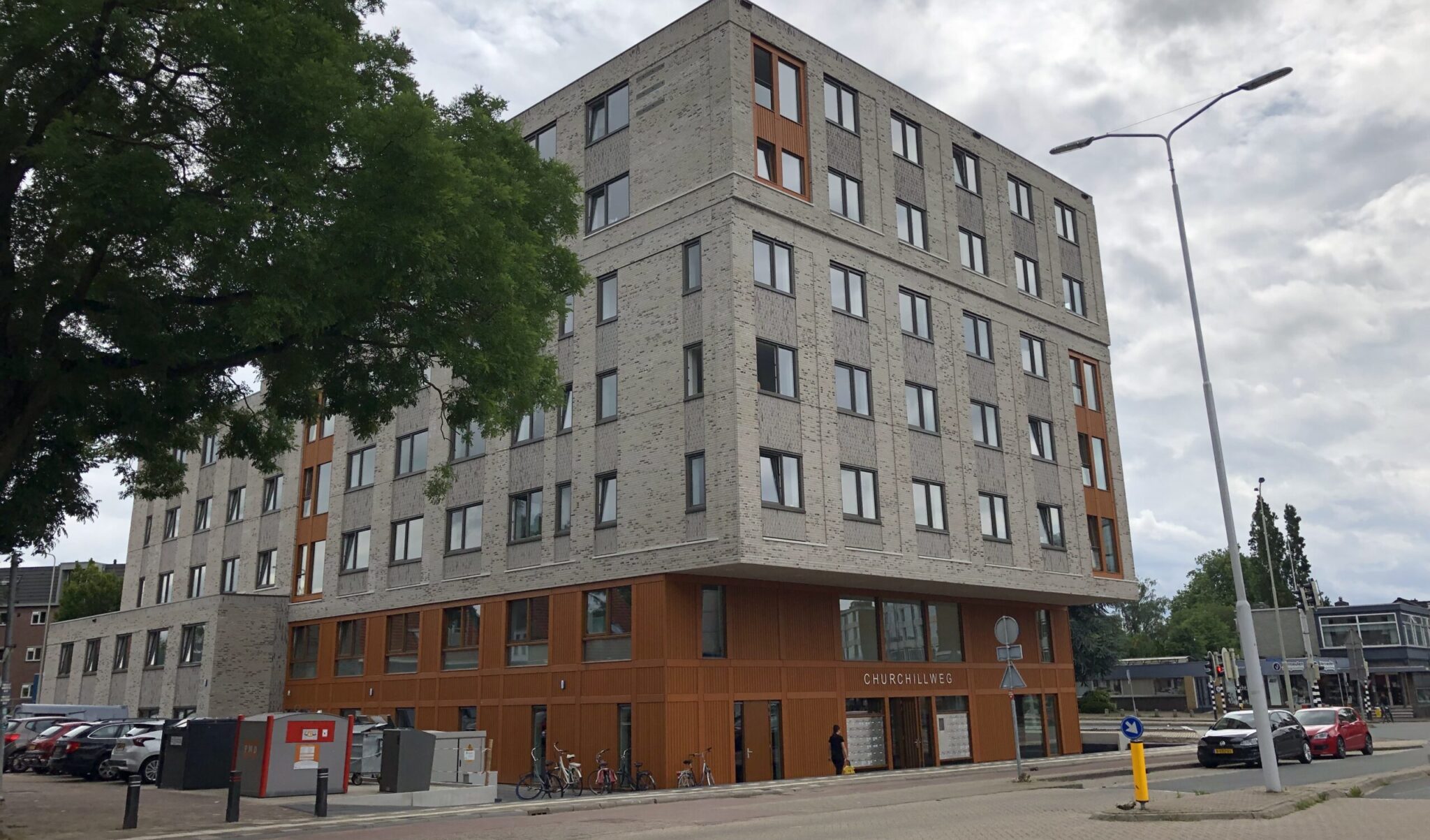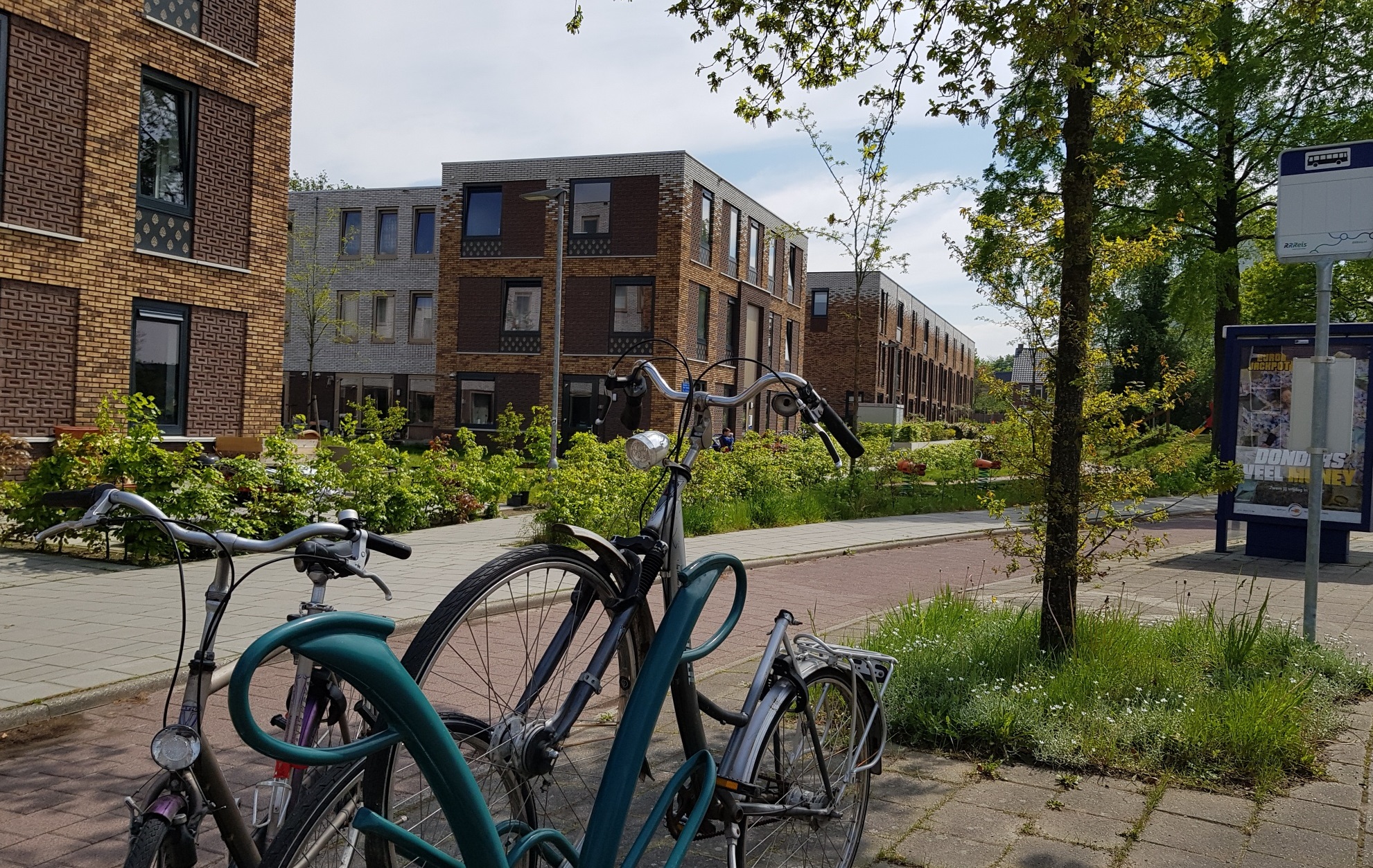Energy prices have soared since the war in Ukraine began. Like everyone else, students are hard-hit. It is affecting them, their housemates and the student societies.
In early December, student housing provider Idealis announced that their tenants will face much higher service charges from 1 January 2023: an average increase of 71 euros per month, a 127 per cent rise. The exact amount varies with the type of room, the building, energy use and other factors. One of our student editors who lives in Dijkgraaf, for instance, will now spend 389 euros a month on living expenses, up from 302 euros. Idealis spoke of ‘quite a strain’ on students’ financial situation.
Idealis, which is Wageningen’s largest student housing provider, is trying to keep tenants informed of developments. For instance, a new email address has been created for questions about energy bills. And along with other student housing providers, student unions, universities and other organizations, Idealis is lobbying the government for support measures for students. Because despite their low incomes, students don’t usually qualify for such support.
When tenants write that I should be lynched, that’s unacceptable
Martijn Balke, Idealis operations manager: ‘In many policymaking contexts students get forgotten – consciously or unconsciously. It is wrong that students are not eligible for support: they are residents of the municipality too and they have to pay more for energy like everyone else.’ The lobby seems to be bearing fruit: there are sign of action in The Hague and further clarity is expected by the end of February on, for example, what the price ceiling for energy costs will look like in student flats with building-wide heating systems (see inset).
Worries
However, the fact that students will soon be eligible for some support measures does not mean their worries are over, says Balke. ‘People often forget that the rates below the price cap have still gone up enormously compared to last year. All it means is that their difficulties will be eased slightly, but we don’t know yet how much exactly.’
Meanwhile, residents’ questions are trickling in. Can’t individual energy meters be installed in complexes with building-wide heating systems? No, says Balke, because installing a meter in every room or corridor costs hundreds of euros per room, and those costs ultimately have to be covered by the rent. ‘That doesn’t outweigh the potential savings this could bring.’
Once there are lots of people in the bar, it soon warms up
Some residents also wonder why they should be more frugal with energy while their neighbours put the heating up high and everyone pays the same for their energy at the end of the month anyway. ‘Saving energy makes sense, but the residents of a complex should do it together.’
Tense relations
Housing costs are rising even faster with other landlords, and that can cause strained relations between tenants and landlords. For instance, residents of the Beringhem student complex in Bennekom were shocked when their service costs more than doubled in several stages last year. Bachelor’s student of Forest and Nature Management Bob Schobbers (20): ‘In 2021, I paid about 525 euros a month, of which 142 euros was service costs. From January 2022, it became 581 euros per month, with 198 euros in service costs. In October and November 2022, it suddenly rose sharply, to 740 euros per month, 348 euros on which was service costs. In December, I paid nearly 800 euros, of which 405 euros was service costs.’ The service fell again in January, leaving him with about 680 euros in housing costs this month.
For Beringhem residents, it is not always clear why their service costs fluctuate so much, Schobbers says. And it wasn’t always easy to communicate with the landlord. ‘For example, I got a letter shoved under my door urging me to pay an invoice of almost 800 euros that had supposedly been outstanding for a long time, and saying that if I didn’t, they would come by to collect it.
Saving energy makes sense, but residents of a complex should do it together
When I emailed to ask where that invoice came from because I had transferred my rent as usual, it turned out to be a mistake.’ Meanwhile, several of the residents had questions about their service charges. There was supposed to be a meeting in October to answer their questions, Schobbers says. ‘But in a private residents’ WhatsApp group, threats towards the landlord JW Vastgoed Management were made jokingly. Those messages reached them and they did not show up at the meeting.’ Beringhem residents took the case to the rent tribunal for investigation.
Understanding
Johan Wagteveld of JW Vastgoed Management in Ede confirms that there was a tense relationship between his office and some of the tenants. ‘When people write that I should be lynched or call me cancer-Johan, that’s unacceptable to me.
It is wrong that students are not eligible for support
The way a small minority of the tenants behave towards our staff is absurd. It is a pity that other residents suffer for it, but it made us decide only to answer questions in writing.’ He finds the excuse that it was meant as a joke incomprehensible. ‘We want to have a good relationship with tenants, but the starting point for that is mutual respect.’
‘In view of the massive rise in energy costs from 1 January 2022, the difference between the advance payment and the actual bill became so big that we decided on an interim payment in October 2022,’ Wagteveld says. ‘That extra sum was added to the advance payment for the last months of 2022 so that tenants won’t be faced with a massive bill at the end of their tenancy. We do this at all our complexes and it is in line with the rent tribunal’s policy manual. We have collated all our tenants’ queries and sent them with explanations in a general email to all tenants.’
Reality
‘Of course we share our tenants’ concerns about high advance payments,’ Wagteveld says, ‘but unfortunately this is the reality. If the government comes up with a solution to compensate tenants in complexes like Beringhem, with building-wide heating, we will pay that out to tenants as well.’
Schobbers says he does understand why JW Vastgoed is passing on the increased energy costs to the tenants. ‘But it is a lot of money.’ He hopes the government will start helping students with their bills. ‘I have a nice room, but if it suddenly costs me nearly 700 or 800 euros a month instead of 600 euros, I really need to look for something else. My neighbour is in the same boat. We’ll wait and see.’
Support measures
The government is trying to help people cope with the energy crisis in several ways, but for a long time most students were left out in the cold, all too literally.
* A price cap was introduced this month, which means that below a certain energy consumption level (the ceiling), people don’t pay more than a set ‘ceiling rate’. Many student residences, such as the star flats in Wageningen, have central heating at the building level, with one big shared connection. So the flats don’t have their own energy meter and together they always end up paying more than the energy ceiling rate. For a long time it seemed that this group, which includes many students, would miss out, but mid-December the Minister for Energy Rob Jetten announced a separate scheme which is expected to start by the end of February.
* Secondly, many students did not qualify for the two compensation payments of 190 euros that households received for their energy bills in November and December. Why not? Because students renting a house together don’t usually have their own contract with their energy provider. Jetten wants to address this too. How he will do so should become clear by the end of February.
* Then there is the one-off energy allowance of 1300 euros for low-income households. In line with the advice of the Ministry of Social Affairs, most students are not eligible for this. Unjustifiably, according to local and national student representatives, such as the Wageningen Chamber of Associations. Many students’ incomes are low enough to qualify for the allowance, but they do not always meet other criteria. Student union LSVb is calling on students to apply for the energy allowance anyway and lodge objections if they are rejected, and then to go to court if their objection also goes unheard.
Cold in the pub
Student societies are adjusting to higher energy bills too. ‘They have to,’ says Ceres president Cas Struker. When the temperature dropped after the summer, all the radiators were turned off and the knobs removed so no one could turn them back on. ‘We still heat with gas, so it’s not doable to keep the whole clubhouse warm. But at one point, when the board was meeting wearing three jumpers and gloves and we were still cold, we decided to heat the rooms where we work during the day a little bit at least. Not that it is warm here now, but you can work without gloves on now.’ In the bar, the heating is still off. ‘So it is cold there at the start of the evening, but once there are a lot of people, it automatically warms up. On special occasions or dinners, the fireplace is lit and electric heaters are used.’ Members are understanding about the cold clubhouse, says Struker. ‘If we save on this, we can keep doing other things.’
Ceres’ sustainability committee (DuurCo) has set up a project with the municipality to make student houses more sustainable. ‘The municipality wants to combat energy poverty in Wageningen,’ says DuurCo chairman Jasper Breeuwsma. ‘In that project, a sustainability team – the Tochtbusters (draughtbusters) – goes around houses to improve the insulation in simple ways, completely free of charge. Things like window foil, radiator foil and draught excluders. We proposed doing the same in student houses.’ The municipality responded enthusiastically, so DuurCo sent a questionnaire around to student houses in Wageningen and 55 of them signed up. ‘Student houses often still have single glazing. Window film helps to keep more than 50 per cent more heat inside, so that’s a big saving.’ An order for insulation material has already been placed. ‘Two Tochtbusters will be coming to our clubhouse soon to explain how to install it.’
Are you a student and in acute need of money? You may be eligible to apply to the Louise O. Fresco Fund. This was set up by former WUR president Louise Fresco when she left to help WUR students who find themselves in financial difficulty through unforeseen circumstances. You have to be able to prove that you do not have the money, cannot borrow and cannot take on extra work alongside your studies.

 Illustration Valerie Geelen
Illustration Valerie Geelen 

